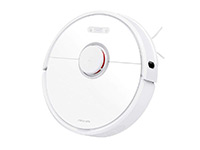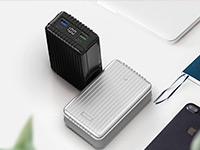The Best Antivirus Protection for
2016
School's out! Time to think about how you'll spend your summer vacation. Remember, though, that malware never goes on vacation. While you're lounging on the beach tapping at your laptop, or Instagramming amazing ethnic dishes, you might be losing your credit card numbers to a data-stealing Trojan. All of your PCs, be they stodgy desktops stuck at home or world-traveling laptops, need antivirus protection. We've carefully analyzed dozens of antivirus utilities and winnowed them down to the 10 best so you can decide which is the best for you.
I did say antivirus, but in truth it's unlikely you'll get hit with an actual computer virus. Malware these days is about making money, and there's no easy way to cash in on spreading a virus. Ransomware and data-stealing Trojans are much more common, as are bots that let the bot-herder rent out your computer for nefarious purposes. Modern antivirus utilities handle Trojans, rootkits, spyware, adware, ransomware, and more. PCMag has reviewed 42 different commercial antivirus utilities, and that's not even counting the many free antivirus tools. Out of that extensive field we've named four Editors' Choice products.
Nine more commercial antivirus utilities proved effective enough to earn an excellent four star rating. I eliminated three special-purpose products that aren't really like the rest: Daily Safety Check Home Edition, Malwarebytes Anti-Exploit Premium, and VoodooSoft VoodooShield 2.0. That leaves the ten excellent products you see above.
Almost all of these products are traditional, full-scale, antivirus tools, with the ability to scan files for malware on access, on demand, or on schedule. A couple are outliers, tools meant to enhance the protection of traditional antivirus. As for just relying on the antivirus built into Windows 8.x or Windows 10, that may not be the best idea. In the past, Windows Defender has performed poorly both in our tests and independent lab tests It did score several wins last year, and it earned decent scores in several more recent tests. Even so, our latest evaluation indicates that you'd still be better off with a third-party solution?
Listen to the Labs
I take the results reported by independent antivirus testing labs very seriously. The simple fact that a particular vendor's product shows up in the results is a vote of confidence, of sorts. It means the lab considered the product significant, and the vendor felt the cost of testing was worthwhile. Of course, getting good scores in the tests is also important.
I follow five labs that regularly release detailed reports: Virus Bulletin, Simon Edwards Labs (the successor to Dennis Technology Labs), AV-Test Institute, MRG-Effitas, and AV-Comparatives. I also note whether vendors have contracted with ICSA Labs and West Coast labs for certification. I've devised a system for aggregating their results to yield a rating from 0 to 10.
PCMag's Own Antivirus Testing
I also subject every product to my own hands-on test of malware blocking, in part to get a feeling for how the product works. Depending on how thoroughly the product prevents malware installation, it can earn up to 10 points for malware blocking.
My malware-blocking test necessarily uses the same set of samples for months. To check a product's handling of brand-new malware, I test each product using 100 extremely new malware-hosting URLs supplied by MRG-Effitas, noting what percentage of them it blocked. Products get equal credit for preventing all access to the malicious URL and for wiping out the malware during download.
Some products earn absolutely stellar ratings from the independent labs, yet don't fare as well in my hands-on tests. In such cases, I defer to the labs, as they bring significantly greater resources to their testing. Want to know more? You can dig in for a detailed description of how we test security software.
Multi-Layered Antivirus Protection
Antivirus products distinguish themselves by going beyond the basics of on-demand scanning and real-time protection. Some rate URLs that you visit or that show up in search results, using a red-yellow-green color coding system. Some actively block processes on your system from connecting with known malware-hosting URLs or with fraudulent (phishing) pages.
Software has flaws, and sometimes those flaws affect your security. Prudent users keep Windows and all programs patched, fixing those flaws as soon as possible. The vulnerability scan offered by some antivirus products can verify that all necessary patches are present, and even apply any that are missing.
You expect an antivirus to identify and eliminate bad programs, and to leave good programs alone. What about unknowns, programs it can't identify as good or bad? Behavior-based detection can, in theory, protect you against malware that's so new researchers have never encountered it. However, this isn't always an unmixed blessing. It's not uncommon for behavioral detection systems to flag many innocuous behaviors performed by legitimate programs.
Whitelisting is another approach to the problem of unknown programs. A whitelist-based security system only allows known good programs to run. Unknowns are banned. This mode doesn't suit all situations, but it can be useful. Sandboxing lets unknown programs run, but it isolates them from full access to your system, so they can't do permanent harm. These various added layers serve to enhance your protection against malware.
Bonus Features
Firewall protection and spam filtering aren't common antivirus features, but some of our top products include them as bonus features. In fact, some of these antivirus products are more feature-packed than certain products sold as security suites.
Among the other bonus features you'll find are secure browsers for financial transactions, secure deletion of sensitive files, wiping traces of computer and browsing history, credit monitoring, virtual keyboard to foil keyloggers, cross-platform protection, and more. You'll even find products that enhance their automatic malware protection with the expertise of human security technicians. And of course I've already mentioned sandboxing, vulnerability scanning, and application whitelisting.
What's Best?
Which antivirus should you choose? You have a wealth of options. Kaspersky Anti-Virus (2016) and Bitdefender Antivirus Plus 2016 invariably rate at the top in independent lab tests. A single subscription for McAfee AntiVirus Plus (2016) lets you install protection on all of your Windows, Android, Mac OS, and iOS devices. And its unusual behavior-based detection technology means Webroot SecureAnywhere Antivirus (2016) is the tiniest antivirus around. We've named these four Editors' Choice for commercial antivirus, but they're not the only products worth consideration. Read the reviews of our top-rated products, and then make your own decision.
One Last Note
All the security software conspiracy theorists are doubtless preparing to weigh in (yet again) with their suspicions as to why I didn't include Symantec's Norton Antivirus in this roundup. There's actually a very good reason for that. Symantec hasn't made a standalone antivirus in several years, opting instead to sell only security suites, which I have in fact reviewed. Note, too, that I reviewed many more antivirus utilities than I could include in this story. If your favorite software isn't listed here, chances are I did review it, but it just didn't make the cut. You can see all the relevant reviews on PCMag's antivirus software page.
Bitdefender Antivirus Plus 2016

Editors' Choice winner Bitdefender Antivirus Plus earns top scores in lab tests and our own tests, and also packs in a wealth of useful bonus features.
Kaspersky Anti-Virus (2016)

Kaspersky Anti-Virus (2016) looks a little different from last year's model, but it still delivers excellent protection, as proven by its excellent scores in independent lab tests and our own hands-on tests.
McAfee AntiVirus Plus (2016)

McAfee AntiVirus Plus is very capable, and it includes a raft of bonus features. But what pushes it into stardom is the fact that a single subscription lets you install protection on every Windows, Mac OS, Android, and iOS device that you own.
Webroot SecureAnywhere AntiVirus (2016)

Webroot SecureAnywhere AntiVirus remains the smallest, fastest antivirus around, and it aced our hands-on malware-blocking test.
Avast Pro Antivirus 2016

With Avast Pro Antivirus 2016 you get the same effective protection found in Avast's free edition along with a hardened browser, DNS protection, and sandboxing. Experts will love these advanced features, but for the average user the free edition is just fine.
Emsisoft Anti-Malware 11.0

The highly configurable Emsisoft Anti-Malware earns very good scores from the labs, and it did very well in our hands-on malware blocking and malicious URL tests.
ESET NOD32 Antivirus 9

ESET NOD32 Antivirus 9 is a step up from the company's previous version, and gets excellent marks in most independent lab tests. It scores especially well in our antiphishing and malicious URL blocking tests.
F-Secure Anti-Virus 2016

F-Secure Anti-Virus 2016 sticks to the business of malware protection. It does a good job, and you can install it on both Windows and Mac OS devices.
Panda Antivirus Pro 2016

Panda Antivirus Pro extends the impressive antivirus found in the free edition with a number of useful additional features, but the free edition is a better choice for most users.
Trend Micro Antivirus+ Security 2016

Trend Micro Antivirus+ Security 2016 does a good job protecting against malware and spam. It's not quite an Editors' Choice, but it's still worth considering to keep your PC safe.







































